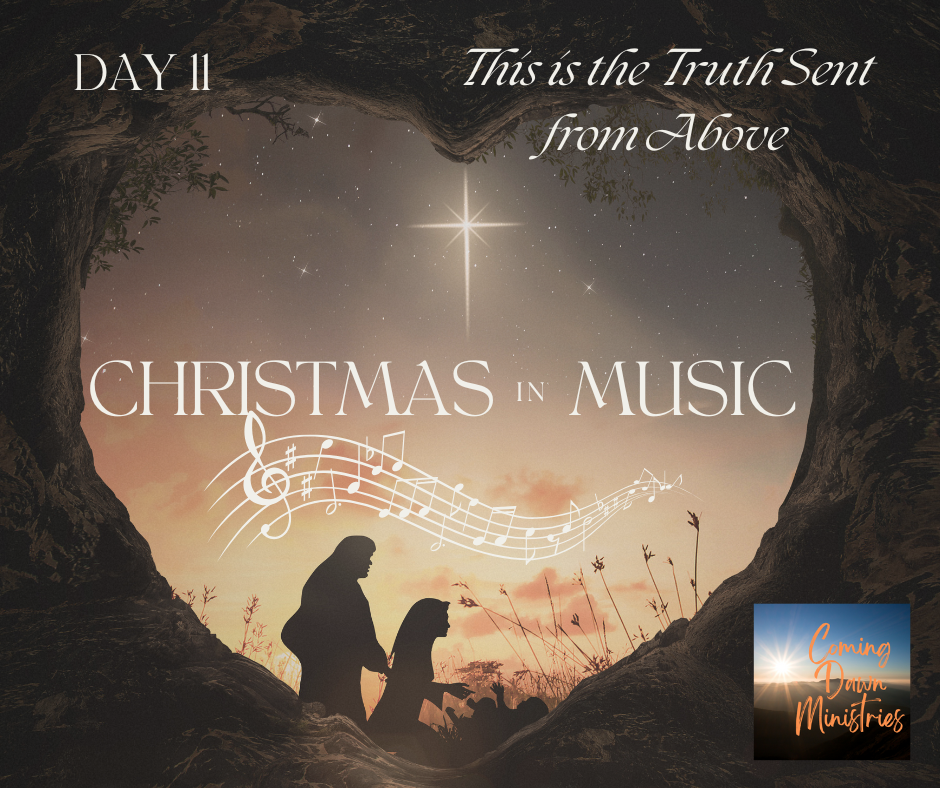The Danger of Unholy Alliances
- Renée Coventry
- Jun 2, 2020
- 8 min read
The Lord has been dealing with me on this topic for a couple of weeks now, and just now have I felt able to share what He has shown me. It is rather lengthy, but I pray you will take the time to read, meditate, and pray into this, and what the Lord would have you to do in response. In Christ - Renée
Jehoshaphat. His name means, "Jehovah has judged," and he was one of the best, most blessed, and devout kings of Judah. For my purpose, I shall affectionately refer to him as "J." In 2 Chronicles 17, we are told he walked in the ways of David and God's commands rather than Israel's, and because of it, the Lord established his kingdom. "His mind rejoiced in the LORD's ways" (vs. 6). He was a reformer, educating the people in the ways of God, and he had amassed a mighty army. He also knew how to call on the Lord. His prayer was most powerful when the Ammonites and Moabites came against Judah. It begins:
"Lord God of our ancestors, are You not the God who is in heaven,
And do You not rule over all the kingdoms of the nations?
Power and might are in Your hand, and no one can stand against You" (2 Chron. 20: 6-7)
As we know, J. sent out the worshippers, and God wrought a mighty deliverance for Judah that day, without them ever having to lift a sword. Amid their praise, in their worship, God did something miraculous that was undeniable, all because J. led his people in intercession and fasting, and this is often used in the pulpit as an example of God taking up the cause of His people when they humble themselves before Him.
However, there are bookends to this event that had severe consequences for Judah, and it's not a pretty picture. This beloved leader and man of God made some decisions that would send Judah into a tailspin for generations even though I don't believe he intended to do so. Before the deliverance God wrought for the worshippers and people, J. entered into what I call an "unholy alliance."
In 2 Chronicles 18:1, we are told that J. had riches and honor in abundance due to the blessing of the Lord and yet he chose to ally with King Ahab of Israel. Yes, that Ahab – the guy married to Jezebel. J. married his heir to their daughter, and in a visit to Israel, J. would be convinced by Ahab to enter into battle. What's interesting is that J. insisted on asking a true prophet of God if this would succeed (18:6), and even when Micaiah said that Ahab would not return safely, J. still chose to go into battle and even adorned like a king, while Ahab would be in disguise (18:29). When the enemy pursued J., he did have enough sense to cry out to the Lord, and God did deliver him. Ahab was not so blessed – He died as the prophet had foretold.
Even though God delivered J. from his grievous error, that would not be the end of it. In chapter 19, verse 2, Jehu the prophet confronted J. saying, "Do you help the wicked and love those who hate the Lord? Because of this, the LORD's wrath is on you. However, some good is found in you, for you have removed the Asherah poles from the land and decided to seek God." Note, God's wrath was still upon J. for this unholy alliance of both marriage and war with the enemy of God. God spared J. in this battle and delivered Judah from the Ammonites in a powerful way, despite this unholy alliance because J. sought Him, but the next generation, well, that's another story.
After their victory in the place of worship, it says that God gave J. rest on every side (20:30). Even though their worship and intercession moved the hand of God, in verse 33 of chapter 20, it says, "However, the high places were not taken away; the people had not yet determined in their hearts to worship the God of their ancestors." What? God had just proven Himself in a mighty way in response to their worship, and yet they were still indecisive and double-minded? Even J. did not learn the lesson, for he would once again enter into an unholy alliance.
God had granted peace to J., and even in God's favor he foolishly chose to make another alliance, this time with Ahab's heir, King Ahaziah (20:35). J. entered into a contractual agreement with him to make ships for economic gain. This time, God was not so lenient with J. Eliezer prophesied against J. saying, "Because you formed an alliance with Ahaziah, the LORD has broken up what you have made" (20:37). J. lost all of his ships. The work and resources he had put into this project birthed of an unholy alliance were destroyed by the same God who had rescued him in battle. But that's not all lost because of these unholy alliances.
When J. died, the kingdom of Judah passed to his eldest son, Jehoram, whom because of J.'s unholy alliance with Ahab, was married to Jezebel's daughter. Though J. made provisions for his other sons throughout the kingdom, Jehoram killed all of his brothers and others, as well. He would prove such an ungodly leader that Elijah the prophet via a letter would condemn him by the Spirit of God. A horrible illness would strike his people, his wives, and his sons. Jehoram would be struck in his intestines and die a horrible death and live in pain the rest of his days. It would say of Jehoram that he "died to no one's regret" (21:20).
How did things disintegrate so quickly for the nation of Judah? Rehoboam had lost the kingdom, but his son Asa followed the Lord, as did Jehoshaphat, and in one generation all was lost. Why? I believe it was because of the unholy alliances made by J. while he was walking in the blessing of God – and this greatly concerns me because the church is in this same danger.
The church of America has been greatly blessed. We've been blessed with funds to send the gospel worldwide, we've gone to battle on behalf of our nation with times of worship and intercession, such as this last month preceding Pentecost, but have our hearts been convinced to truly worship the God of our ancestors to the point of true repentance? The repentance that breaks our hearts and turns our hearts toward God?
You see, J. compromised. He did what worldly kings did and married his heir to the world's system that had infiltrated the nation of Israel at that time. Have we, while reveling in the blessing of God, married our heirs, the next generation of the church, to the world? What have we allowed to enter our house that is not of God and hates Him? Have we for the sake of our own economy aligned ourselves with the world's tax-exempt status to enlarge our coffers, and lost our children?
Lest you think that I am exaggerating, in 2019, Barna reported that the drop-out rate for young people when they enter their college years and twenties is at a staggering 64%. In 2018, Barna reported that 59% of Gen Z don't' feel that the church is relevant to them personally. Would you hand over seven to the enemy for the sake of maintaining unholy alliances? Are we losing the next generation because we married ourselves to the world's ways and methods, choosing the mass-production of converts over making disciples, as Jesus commanded? As a mother of four Gen Z boys, I am more than concerned. While there is hope for resilience, when will we move past the momentary excitement of seeing the Lord bring mighty deliverances and still not set our hearts to worship and serve him?
There is hope that we will not be the Jehoshaphat generation. We can repent, we can turn from our wicked ways, we can still call upon the Lord. You see, our future as people who love and follow the Lord is secure, but what of the next generation who has watched as we have compromised, only to call upon the Lord when trouble strikes, and then turn around and compromise yet again? What about my kids and your grandkids who have seen us make unholy alliances rather than trust in the power of God? What about the "None" generation who feel they have no affiliation with God or His church at all? It is a certainty they are watching, and we can't get out of it with the proverbial, "Do as I say, not as I do."
In his book, Grow Together, Jeff Myers shares that, "Failure to pass on godly principles in one generation always leads to bloodshed in the next" (42). We are seeing this firsthand today, and it was certainly true in the Old Testament. King Jehoshaphat may have been a good king, but he was a lousy father to Jehoram. Has our generation been the "good church," seeing many come to God even while we compromised and failed to father the next generation? Are there unholy alliances that we need to break free of for the sake of our children and purposefully choose a return to holiness for their sakes? You see, J. wasn't the one to pay the price. No, God was exceptionally gracious to him, but in his compromise, he passed the bill for his wayward ways, and it was his children and kingdom left with the debt of his unholy alliance. And it wasn't just the next generation. This trend would lead to a usurper – Athalia – taking control of the kingdom until it was restored to its proper ruler. Let's not let the enemy take our children there! May the victory of this past Pentecost endure - reviving us, changing us and restoring us to holiness. May we not be the Jehoshaphat generation that God must judge, and break our unholy alliances, refusing to lose the next generation!
Prayer: Father, You are our Creator, our Healer, and our only source of hope. Forgive us for building our own kingdoms rather than Yours and for making unholy alliances within the church that have pushed our children away rather than drawing them to you. Lord, we choose to break and rescind all unholy alliances and purpose with Your leading to reclaim the next generations for You and Your glory. We commit to being holy, even as You are holy (I Pt. 1:16), and to fathering as You father. We choose to make disciples, not just converts; world-changers, not pew-sitters. Holy Spirit, keep us on task, and cause us to remain true to Your heart for the coming generations that we will pass on a legacy of righteousness and fortitude - that our children would be resilient and strong in You and the power of Your might (Eph. 6:10). Teach us to teach them in the way they should go, so they will not depart from it (Prov. 22:6). We want to diligently impress upon them what it means to be a bearer of Your Name, recalling joyfully Your miraculous work in our own lives (Deut. 6:7). Help us to be instruments of restoration to those that have left, so that they will return to You and change the trend of ungodliness. Help us to be firm and unshakeable, abounding always in Your work with a confidence that our labor is not in vain (I Cor. 15:58). May we boldly cross generational divides with sensitivity and wisdom to see Your will done on earth as it is in heaven (Matt. 6:10). In the precious, most powerful Name of Yeshua, amen!




Comments